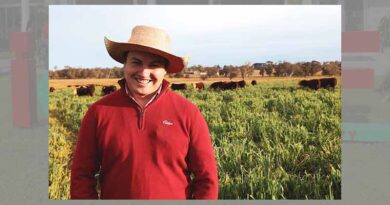
Italian Farmers Install Pay Gates to Protest Mass Tourism in the Dolomites
07 August 2025, Dolomites: A picturesque hiking trail in the Italian Dolomites has become the unlikely battleground between local farmers and a surge of tourists driven by social media trends. The iconic Mount Seceda and the nearby Drei Zinnen mountain range have recently seen visitor numbers skyrocket — with as many as 4,000 tourists flocking to the area each day, largely to capture the perfect Instagram-worthy shot.
Faced with the overwhelming influx, some local farmers have taken an unusual — and controversial — stand. In protest against what they describe as uncontrolled tourism, they have installed turnstiles on hiking trails, requiring visitors to pay an entry fee of €5 (approximately $5.40 USD) to access the area’s most photogenic viewpoints.
The move has sparked national attention, shedding light on the growing tension between rural communities and the unchecked impact of digital tourism.
A Viral Trail, a Frustrated Community
What was once a quiet alpine region known for its natural beauty and traditional farming practices has rapidly transformed into a tourism hotspot. The scenic views from Seceda’s ridgeline and the striking rock formations of the Drei Zinnen have become favorites on platforms like Instagram and TikTok, turning the trails into queues and leaving locals to deal with the consequences.
“So many people cross our land and leave trash behind,” said one local farmer involved in the protest. “We put up the turnstile not just to ask for money, but to send a message.”
That message: rural communities are not passive hosts for mass tourism. They are active stakeholders whose land, livelihood, and way of life are increasingly under strain.
From Provocation to Action
The first turnstile appeared earlier this summer but was swiftly removed by national park authorities, who argued that it violated public access rights. However, the farmers weren’t done.
In a joint statement released by the protestors, they said the original installation was meant as a provocation to raise awareness. But after receiving no meaningful response from political representatives, tourism boards, or environmental organizations, they reinstalled the system.
“This is no longer symbolic,” the statement read. “We are being ignored while our land is trampled.”
A Wider Issue in Europe
The situation in the Dolomites reflects a broader trend across Europe. From Venice to Barcelona, popular tourist destinations are struggling to cope with record-breaking visitor numbers, especially in the post-pandemic travel boom and amid the rise of ‘location-tagging’ on social media.
While tourism can bring economic benefits, locals increasingly argue that the costs — environmental degradation, waste, noise, and the erosion of cultural identity — are being unfairly borne by small communities.
In Italy, the Dolomites are part of a UNESCO World Heritage site, protected for their geological and scenic value. But protection on paper doesn’t always mean protection on the ground.
What Happens Next?
While the farmers’ actions have sparked debate, it remains unclear whether the pay gates will remain — or spread. Italian authorities are now being urged to engage in more serious dialogue with local residents, striking a balance between preserving natural beauty and managing tourist flows.
Proposals being discussed include regulated access, seasonal visitor caps, or mandatory eco-fees. But for the farmers in the Dolomites, the message is clear: they are no longer willing to be silent custodians while the world walks — and litters — across their fields.
“Visitors are welcome,” said one protestor. “But respect must come with the photo.”
Also Read: India’s FCV Tobacco Boosts Farmer Incomes, Exports More Than Double
📢 If You’re in Agriculture, Make Sure the Right People Hear Your Story.
From product launches to strategic announcements, Global Agriculture offers unmatched visibility across international agri-business markets. Connect with us at pr@global-agriculture.com to explore editorial and advertising opportunities that reach the right audience, worldwide.






